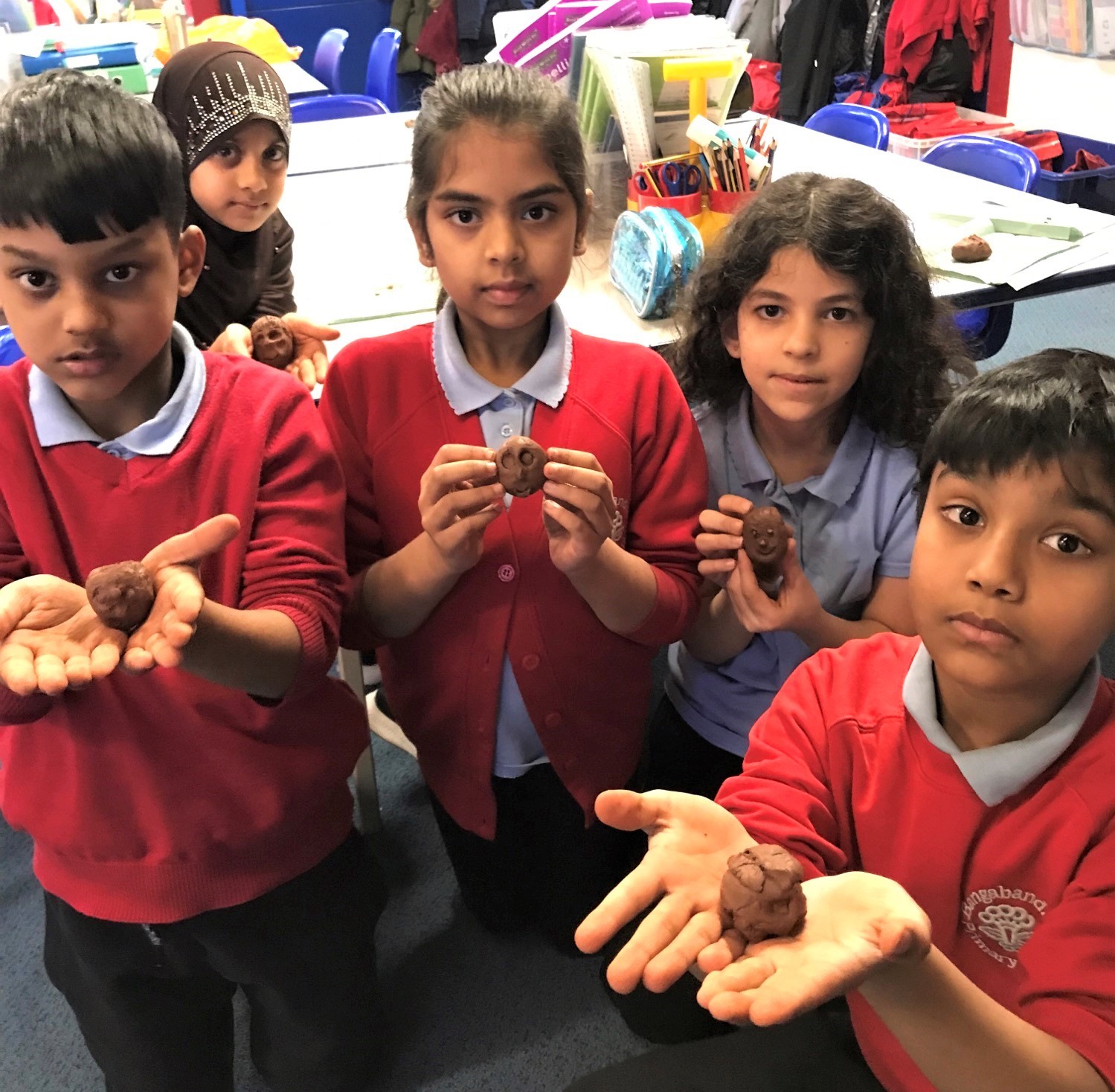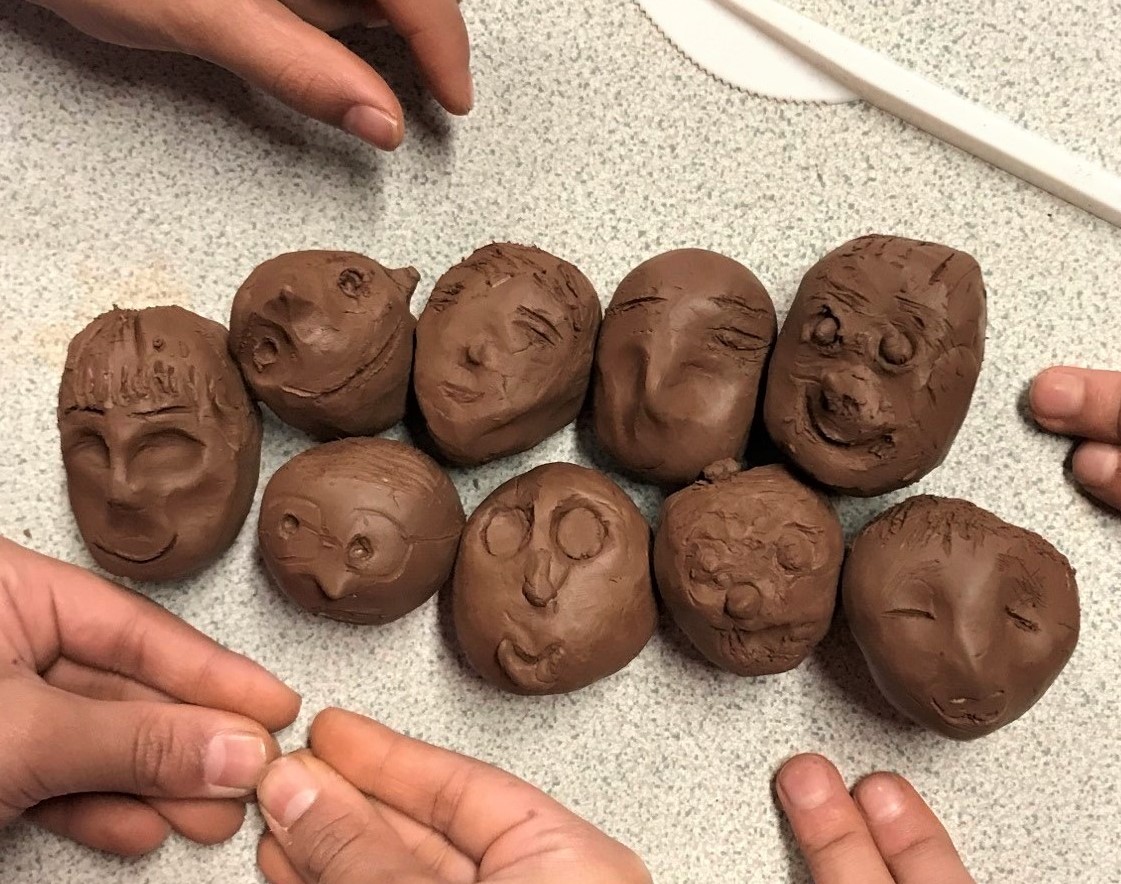THE BANGABANDHU CURRICULUM
Leaders have designed a broad and ambitious curriculum for pupils. Leaders’ expectations of pupils’ academic achievement and behaviour are high. This includes pupils with special educational needs and/or disabilities (SEND). All pupils take part in a range of quality extracurricular activities, and pupils are happy and safe.
The Bangabandhu Curriculum is based on the National Curriculum and includes RE, and Philosophy for Children. We are a Gold Rights Respecting school and our curriculum reflects the culture, values and the ethos of our school. Our curriculum is designed to prepare our pupils for the opportunities, responsibilities and challenges of life in modern Britain. Learning experiences include relevant experiences beyond the classroom, such as educational visits, residentials and a wide range of after school clubs. Our Social, Moral, Spiritual and Cultural education (including age appropriate education on relationships and sex) aims to equip our pupils to be reflective, caring and active members of our diverse society.


We are in the process of implementing a new curriculum, informed by current research on how children learn. We have been learning about cognitive load and schema theory and are implementing associated strategies routinely in class. We have developed an innovative curriculum, with opportunities for deep and rich learning experiences. The National Curriculum is a “mastery” curriculum and we believe that pupils should repeat content as many times as possible across the key stage to gradually deepen their understanding.
Click here for a link to the National Curriculum
Click here for a link to the Early Years Foundation Stage Curriculum
Learning in the Early Years (Nursery and Reception)
Children in Nursery and Reception very quickly learn to transfer and apply skills provided by the Early Years Curriculum.
The prime areas of the Early Years curriculum are:
- Personal, social and emotional development (making relationships, self-confidence and self-awareness as well as managing feelings and behaviour)
- Communication and language (listening and attention, understanding and speaking)
- Physical development (moving and handling and health and self-care)
The specific areas of the Early Years curriculum are:
- Literacy (reading, writing)
- Mathematics (numbers, shape, space and measures)
- Understanding the world (people and communities, the world and technology)
- Expressive arts and design (exploring and using media and materials and being imaginative)
From the start of a child’s education at Bangabandhu he or she is given carefully structured and balanced education using whatever methods and groupings are required to ensure success in learning. Staff at Bangabandhu have developed a rich and engaging curriculum and we would be delighted to discuss any aspects or to show the curriculum being taught to enthusiastic and motivated children.
Here is a breakdown of the progression of skills in the prime and specific areas of the Early Years curriculum.
| Personal, Social and Emotional Development | Progression of skills from Nursery to end of Reception. |
| Communication and Language Development | Progression of skills from Nursery to end of Reception. |
| Physical Development | Progression of skills from Nursery to end of Reception. |
| Literacy Development | Progression of skills from Nursery to end of Reception. |
| Mathematics Development | Progression of skills from Nursery to end of Reception. |
| Understanding the World | Progression of skills from Nursery to end of Reception. |
| Expressive Art and Design | Progression of skills from Nursery to end of Reception. |
Learning to read, write and be numerate
We place great importance in developing children’s skills in reading, writing and number.
We believe that these are foundations to future learning. We use a published literacy scheme to develop children’s reading and writing in Early Years and Key Stage 1, whilst using a systematic and progression led approach to the development of core number skills.
Once children are familiar with the mechanics of reading and writing, and know basic number facts and calculation operations, our curriculum offers them the opportunity to apply and further develop these skills in a wide range of contexts.
More often than not, pupils are taught English and mathematics in flexible ability groups which best match their needs and stages of development.
How do we teach our Curriculum?
The delivery of the curriculum is usually based in the child’s own class, most subjects and skills are taught by the same class teacher, but occasionally children learn with children from other classes or different members of staff. For example, in English and Maths children are grouped according to their learning needs in ‘sets’ or groups and are taught by either the class teacher, support teacher or the class teacher of the same year group.
Weekly music lessons are taught by specialist music teachers. We also have specialist teachers who give weekly instrument tuition in the following instruments: African drums, recorders and guitars.
Weekly Spanish is taught by a Spanish specialist teacher throughout Key Stage 2.
We are a multi-faith school and our Religious Education curriculum reflects this by teaching the main world faiths. As a school community we commemorate major festivals. The Education Reform Act (1988) gives parents the right to withdraw their child from Religious Education. It is unlikely that parents will choose to do this and it is not something we recommend or encourage.
Key Stage One and Key Stage Two Curriulum Maps
Below you will find a summary of what is taught in each year, our curriculum intent.
Cycle 2 - Academic Year 2025/2026
Cycle 1 - Academic Year 2026/2027
Principles of our Curriculum Design
The 2014 National Curriculum is at the heart of our curriculum and all children study the core and foundation subjects. With the expertise of Subject Leaders across our soft federation of Globe and Bangabandhu schools we have developed a curriculum based on a clear progression of knowledge and skills across all subjects.
In many subjects, leaders have thought in detail about what pupils will learn over time. This is reflected in published academic outcomes in 2022 where many pupils made significant progress in reading, writing and mathematics. For example, in mathematics, learning is sequenced carefully and teachers provide regular opportunities for pupils to revisit their learning so that they do not forget important learning.
Our curriculum design follows these principles:
- Research on cognitive and schema development theory underpins our design with regular opportunities for knowledge revisits and retrieval;
- Knowledge and the capacity it provides to apply skills is a priority;
- Progression of content and concepts is clearly thought out, with clearly defined expectations for the end of each Milestone (end of Y2, Y4 & Y6);
- Reading is a priority as it is the key to unlocking the rest of the curriculum;
- It has breadth because narrowing the curriculum damages the life chances of all children but particularly the most disadvantaged.
To supplement the national curriculum we have prioritised the following areas and this will take the form of additional curriculum content. There are our additional ‘school essentials’:
- Philosophy: Our pupils will learn to think deeply and to reflect imaginatively. We teach Philosophy for Children throughout Early Years and KS1.
- Diversity: Our pupils will experience and learn about diversity in all its forms. Diversity broadens our horizons. Diversity content is evident in many of our curriculum subjects but we also regularly have additional workshops, assemblies and events to promote diversity and equality among our whole school community.
- The Arts: We are passionate about a broad, cultural education for our pupils and this often goes beyond National Curriculum content.
- Environment: We value the environment and feel passionate about it. This is reflected through our assemblies, pupil responsibilities and through campaigns and projects our pupils are involved in.
- Rights: We are a Gold UNICEF rights respecting school and our pupils learn about rights through all aspects of the school curriculum and school life.
- Possibilities and Entrepreneurs: We believe it is important for our pupils to have high aspirations and to learn about the importance of initiative and independence; that is why we prioritise events such as Aspirations Day and Y5 and Y6 pupils always take part in the IntoUniversity project.
For more information please follow the links to our subject pages.
Health and Relationships Education
Beyond the National Curriculum - Cultural Capital Experiences
Cultural capital is the essential knowledge that children need to prepare them for their future success. We want to ensure that children at Bangabandhu have a wide and varied range of experiences as they progress through our school. We want them to know about their world; to build a schema of knowledge and to do this through first hand experiences. We intend to provide our children with opportunities to develop not just their knowledge but their interests and talents. Our aim is to prepare them for a successful future.
Our school is in an area of high socio-economic deprivation. We are focused on addressing this disadvantage. Our curriculum is the main provider of cultural capital however there are other aspects of school life which provide essential cultural capital and should not be overlooked. We have planned the cultural provision that goes beyond the curriculum and this plan can be found below. This plan is to capture, illustrate and to strategically plan for the breadth and range of cultural capital experiences we will provide for our children as they move through the school. We are not leaving such an essential element of our school’s provision to chance or individual teacher interest. When a child leaves Bangabandhu in Year 6, we will be certain of what they have learnt and experienced and know that they will be prepared for the next step in their learning and personal development.
Bangabandhu's Whole School Cultural Capital, Trips and Experiences Plan
How will you know your child is doing well?
We make on-going (formative) assessments of pupil’s attainment to track their progress in reading, writing and number. This helps with future planning and also informs our discussions about your child’s progress in parents’ meetings.
After more formal (summative) assessments, such as statutory assessments at the end of key stages, we report the outcomes to parents and report the outcomes of these assessments to the governing body and Department for Education, as required.
Curriculum and Expectation Booklets for Parents
These booklets give an overview of our Key Stage 1 and Key Stage 2 curriculum. They explain what is taught in each subject area as well as outlining some of the expectations we have for children. Parents are given these booklets at the start of each year and they are sent electronically with each term's newsletter.
Year 1 Curriculum and Expectations Booklet for Parents
Year 2 Curriculum and Expectations Booklet for Parents
Year 3 Curriculum and Expectations Booklet for Parents
Year 4 Curriculum and Expectations Booklet for Parents
